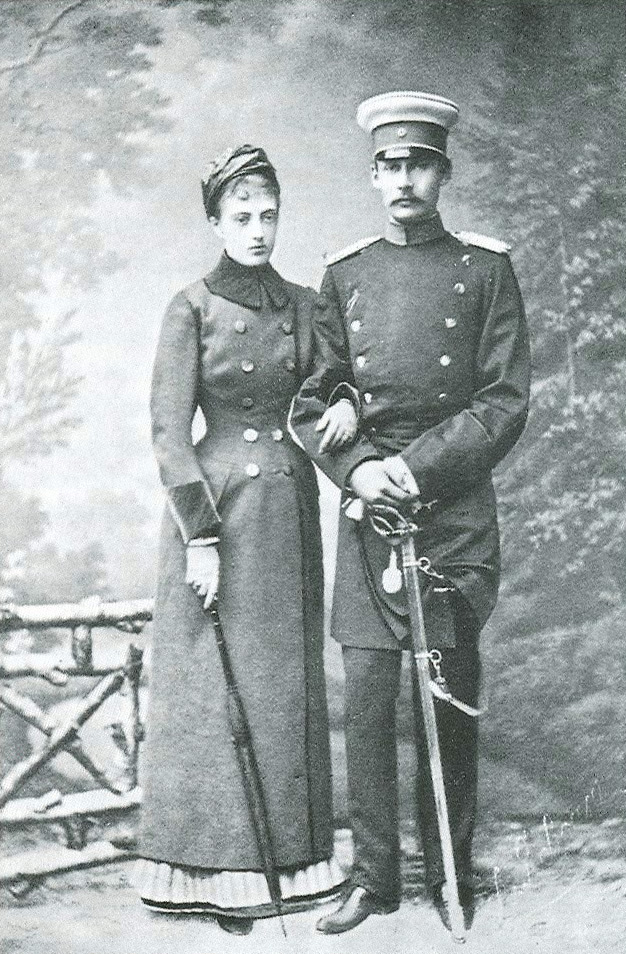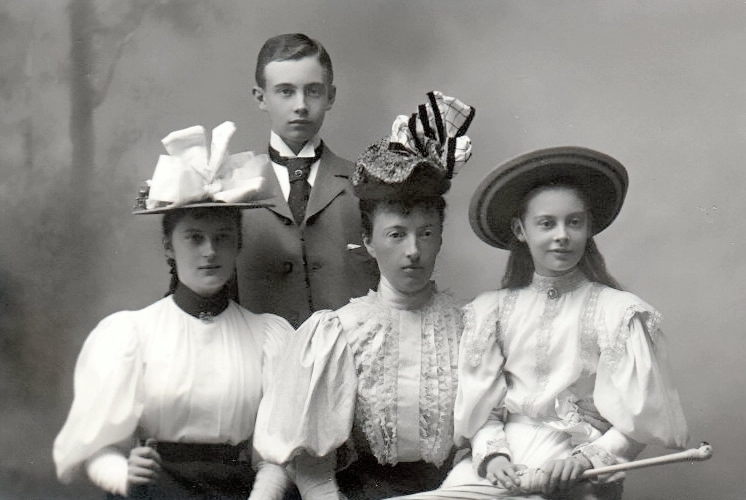by Scott Mehl © Unofficial Royalty 2018
Grand Duchy of Mecklenburg-Schwerin: The Duchy of Mecklenburg was divided and partitioned a number of times over the centuries. In 1701, the last division created the Duchy of Mecklenburg-Schwerin and the Duchy of Mecklenburg-Strelitz. In 1815, the Congress of Vienna recognized both Mecklenburg-Schwerin and Mecklenburg-Strelitz as grand duchies. Friedrich Franz I, Duke of Mecklenburg-Schwerin became the first Grand Duke of Mecklenburg-Schwerin. On November 14, 1918, at the end of World War I, Friedrich Franz IV was forced to abdicate as Grand Duke of Mecklenburg-Schwerin. Today the territory encompassing the Grand Duchy of Mecklenburg-Schwerin is in the German state of Mecklenburg-Vorpommern.
********************

Friedrich Franz III, Grand Duke of Mecklenburg-Schwerin; Credit – Wikipedia
Grand Duke Friedrich Franz III (Friedrich Franz Paul Nikolaus Ernst Heinrich) was born on March 19, 1851, at Ludwigslust Palace, in Ludwigslust, Grand Duchy of Mecklenburg-Schwerin, now in Mecklenburg-Vorpommern, Germany. Friedrich Franz was the eldest son of Grand Duke Friedrich Franz II and his first wife, Princess Augusta of Reuss-Köstritz. He had ten siblings from his father’s three marriages:
- Duke Paul Friedrich (1852) – married Princess Marie of Windisch-Graetz, had issue
- Duchess Marie (1854) – married Grand Duke Vladimir Alexandrovich of Russia, had issue
- Duke Nikolaus (1855) – died in infancy
- Duke Johann Albrecht (1857) – married (1) Princess Elisabeth Sybille of Saxe-Weimar-Eisenach, no issue; (2) Princess Elisabeth of Stolberg-Rossla, no issue
- Duke Alexander (1869) – died in infancy
- Duchess Anne (1865) – died as a teen
- Duchess Elisabeth Alexandrine (1869) – married Friedrich August II, Grand Duke of Oldenburg, had issue
- Duke Friedrich Wilhelm (1871) – unmarried
- Duke Adolf Friedrich (1873) – married (1) Princess Viktoria Feodora of Reuss-Schleiz, had issue; (2) Princess Elisabeth of Stolberg-Rossla – the widow of his half-brother Johann Albrecht, no issue
- Duke Heinrich (1876) – married Queen Wilhelmina of the Netherlands, had issue
A rather sickly child, Friedrich Franz suffered from severe bronchial asthma and a weak heart that would plague him his entire life. Following several years of private education at home, he attended the Vitzhumsche High School in Dresden. He later studied law at the University of Bonn. Despite his health, Friedrich Franz also undertook a military career. He was first created an officer in Mecklenburg’s Grenadier Guards by his father in 1863, followed by an appointment in the Prussian army. At the onset of the Franco-Prussian War, he served in the headquarters of King Wilhelm I of Prussia and later represented Mecklenburg-Schwerin at the Imperial Proclamation in Versailles in 1871. Due to his health, he was forced to step down from his military role in 1877.

Friedrich Franz and his fiancé, Anastasia Mikhailovna, 1878; Credit – Wikipedia
On May 4, 1878, it was announced that Friedrich Franz was engaged to Grand Duchess Anastasia Mikhailovna of Russia, the daughter of Grand Duke Mikhail Nikolaevich of Russia and Princess Cecilie of Baden. Friedrich Franz and Anastasia were second cousins, both great-grandchildren of King Friedrich Wilhelm III of Prussia. They married at the Winter Palace in St. Petersburg on January 24, 1879, in Russian Orthodox and Protestant services. The couple settled at the Marienpalais in Schwerin (link in German), and had three children:
- Duchess Alexandrine (1879) – married King Christian X of Denmark, had issue
- Grand Duke Friedrich Franz IV (1882) – married Princess Alexandra of Hanover and Cumberland, had issue
- Duchess Cecilie (1886) – married Crown Prince Wilhelm of Prussia, had issue

Friedrich Franz III’s wife and children, c1895; Credit – Wikipedia
Friedrich Franz became Grand Duke upon his father’s death on April 15, 1883. At the time, he and his family were living in the south of France, taking advantage of the milder climate. Unable to return to Schwerin for his father’s funeral, he entrusted his ministers with the management of the Grand Duchy. Friedrich Franz eventually returned to Schwerin and took up residence at Schwerin Palace, but the climate was not good for his health. An agreement was reached, by which he would reside in Schwerin for five months of the year, and was free to live elsewhere the rest of the year provided that any further children would be born in Schwerin. Friedrich Franz III and his family spent the summers at their home in Gelbensande, a hunting lodge built in 1886 near Rostock and the Baltic Sea. They then moved on to Cannes from November until May, living at Villa Wenden which he had built there. They also spent time in Palermo and in Baden-Baden.

Villa Wenden in Cannes, France; Credit – Wikipedia
With his health rapidly deteriorating in the spring of 1897, the Grand Duke’s family gathered at Villa Wenden, anticipating the worst. On the evening of April 10, 1897, he was found unconscious at the bottom of the villa’s 25-foot retaining wall. He was taken inside but soon died. Officially, the cause of death was an accident. Likely gasping for air, he had gone out onto the balcony and accidentally fell. However, rumors quickly spread that he had died by suicide.

The Helena Pavlovna Mausoleum, following the burial of Friedrich Franz III; Credit – Wikipedia
Friedrich Franz’s remains were brought back to Mecklenburg, where he lay in state in the church at Schwerin Castle. Following his wishes, his funeral was held at the church in Ludwigslust, with the funeral procession led by the German Empress, Viktoria Auguste. Following the service, he was buried in the Helena Pavlovna Mausoleum on the grounds of Ludwigslust Palace in Ludwigslust, Grand Duchy of Mecklenburg-Schwerin, now Mecklenburg-Vorpommern, Germany.
This article is the intellectual property of Unofficial Royalty and is NOT TO BE COPIED, EDITED, OR POSTED IN ANY FORM ON ANOTHER WEBSITE under any circumstances. It is permissible to use a link that directs to Unofficial Royalty.
Mecklenburg-Schwerin Resources at Unofficial Royalty
